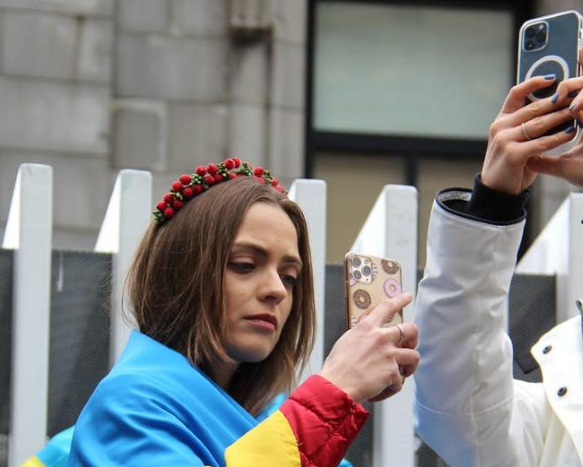The Online Battle In Ukraine: The war in Ukraine is the first time Europe has experienced armed conflict in the digital age, when many people have a camera in their pocket and the Russia’s invasion of Ukraine introduces a new front line, the Internet.
The online battle has been surging on both sides, over questions about whether US technology companies should block content from Russia, online censorship, the spread of disinformation and Ukrainian Internet users facing disruption as missiles fall.
The Anonymous hacking collective has declared cyberwar on the Russian government and there has also been hacking against Ukraine, with denial-of-service attacks on government websites and the emergence of what looks like ransomware without the ability to recover data.
According to Microsoft so-called “wiper” malware “intended to be destructive and designed to render targeted devices inoperable” has been found in dozens of Ukrainian systems across the government, non-profit and information technology sectors. Reuters reported that Ukrainian officials had alleged a Belarusian cyber-spying operation was targeting personal email accounts belonging to Kyiv’s forces.
Social Media On The Frontline
With wide access to social media platforms via the smartphones in every pocket, the combatants have taken to Facebook, YouTube, TikTok, WhatsApp and Telegram to tell their story.
- Ukrainian officials took to Facebook urging locals to remove road signs and disorient Russian troops. Since Friday, the country’s cyber security service has created and publicised multiple automated bots on the chat and social media app Telegram for citizens to report Russian troop movements and road marker tags.
- When Russian media reported that Mr. Zelensky had called on his forces to lay down their weapons, the Ukrainian leader responded with a video showing him on the street near the presidential headquarters in Kyiv, saying the reports were fake and urging Ukrainians to keep fighting. The Ukrainian-language video drew 3.2 million views on Facebook, and a similar post on Telegram was seen 3.8 million times.
- YouTube has said it will halt several Russian channels’ ability to make money and will restrict access to them. Its parent company Google, the world’s biggest adverting business says that it will block Russian state media from selling adverts using its platform tools.
- Ukraine’s cyber security service has created and publicised multiple automated bots on the chat and social media app Telegram for citizens to report Russian troop movements and road marker tags.
In Britain the National Cyber Security Centre (NCSC) has called on organisations to bolster their online defences., Business Secretary Kwasi Kwarteng will reportedly hold talks with the National Grid, amid fears of a wave of state-sponsored Russian attacks on electriacl power supplies. However, the NCSC former head, Ciaran Martin, told the Guardian newspaper cyber had played “remarkably little part” in the conflict so far.
Internet & Telecom Disruption
Internet access has been disrupted caused by damage networks and equipment in parts of the country. According to NetBlocks, fighting in the city of Kharkiv has caused significant Internet disruption, with connectivity to Ukraine’s main internet provider, GigaTrans, dropping below 20% of normal levels.
Elon Musk has responded quickly to calls for his satellite broadband service, Starlink, to be made available in Ukraine, but it remains uncertain if can be widely deployed. The Starlink networks offered “hope for connectivity in a worst-case scenario”, NetBlocks told BBC News, but its terminals were likely to be in short supply. Even then, it is possible that users uplink transmissions would become beacons for air strikes.
In the UK, mobile operators, including O2, Vodafone, Three and EE, have made mobile calls to Ukraine free, with no additional roaming charges for those in the country.
Facebook and Google have both restricted access to some state media accounts in Ukraine, at the request of the Ukrainian government, and banned downloads of Russia Today’s mobile app. Facebook has taken down a network run by people in Russia and Ukraine for “inauthentic behaviour”, posing as independent news entities and creating fake personas across its channels.
In retaliation, the Russian government has imposed partial blockades on Facebook and Twitter, limiting access for Russian users.
Source: Cyber Security Intelligence


























